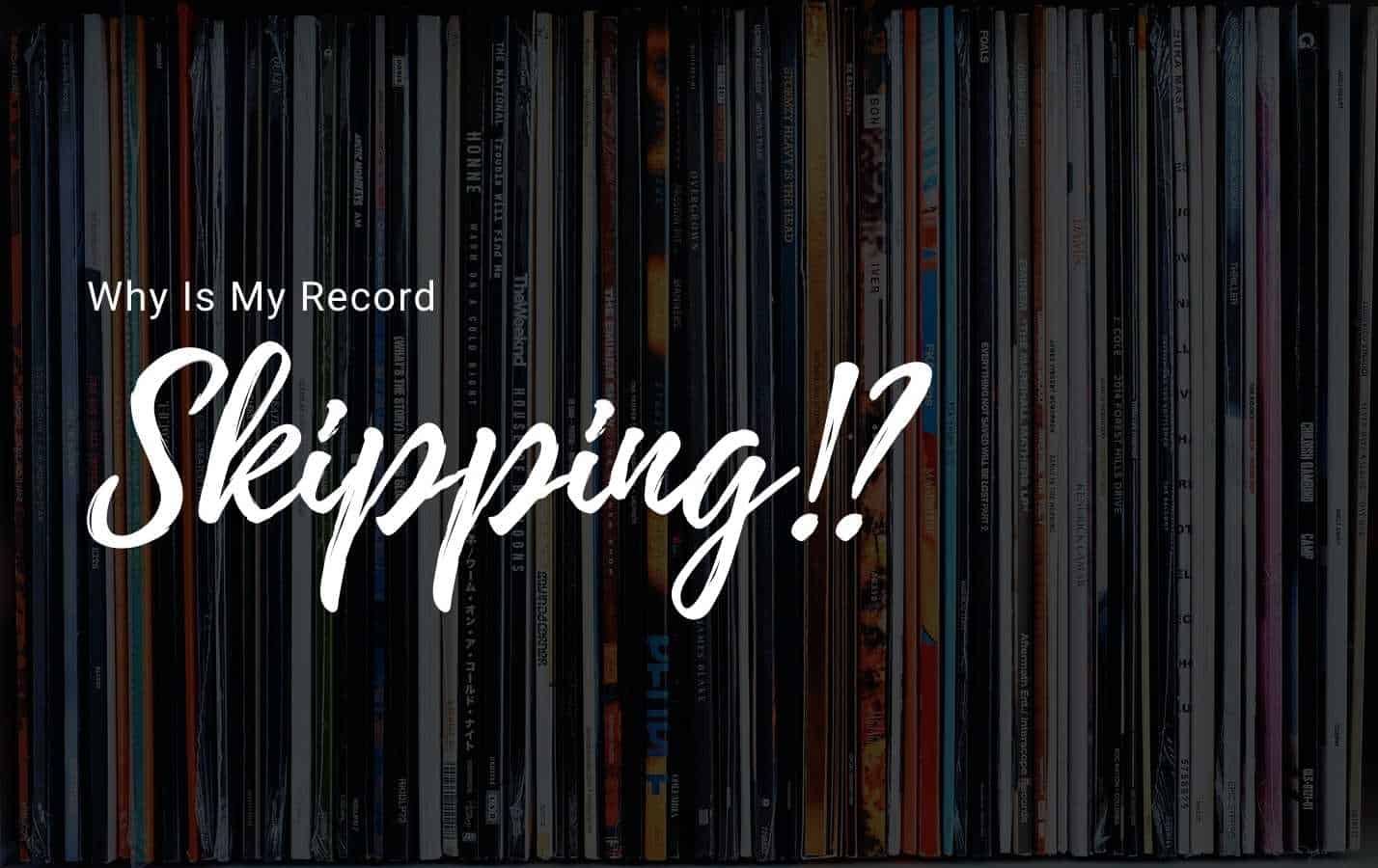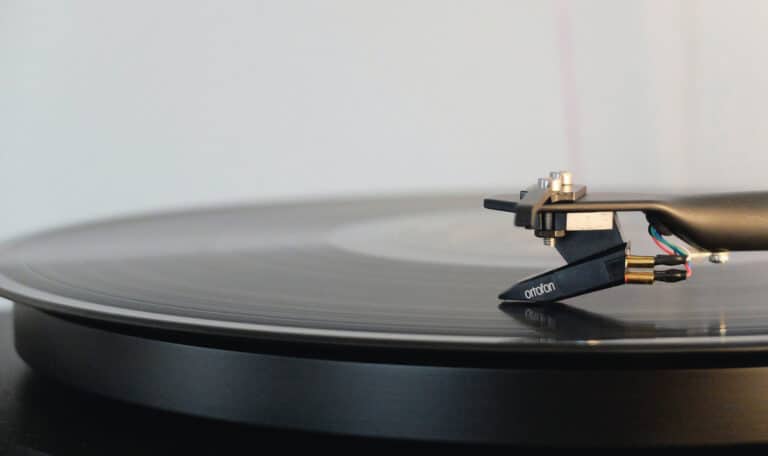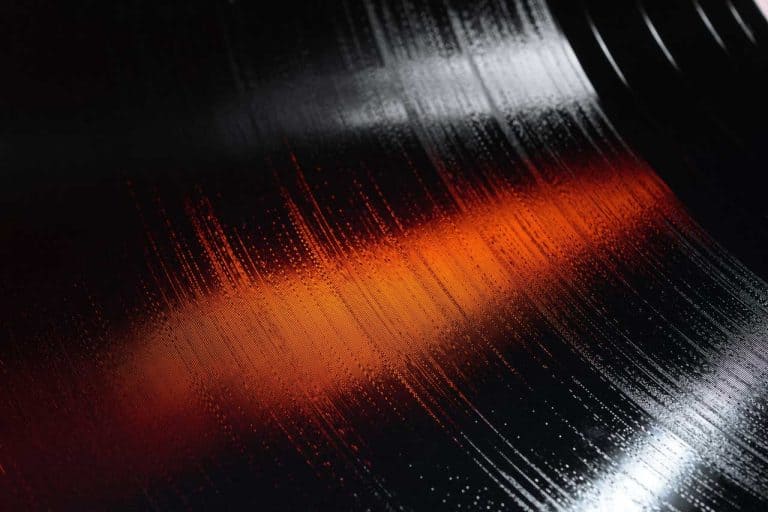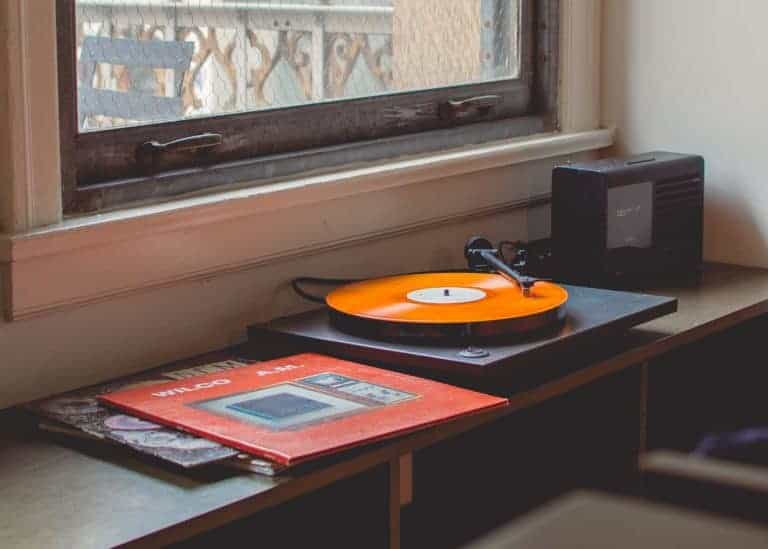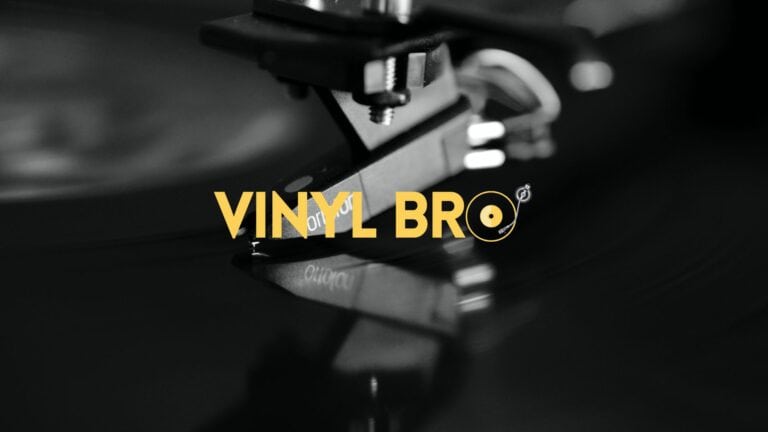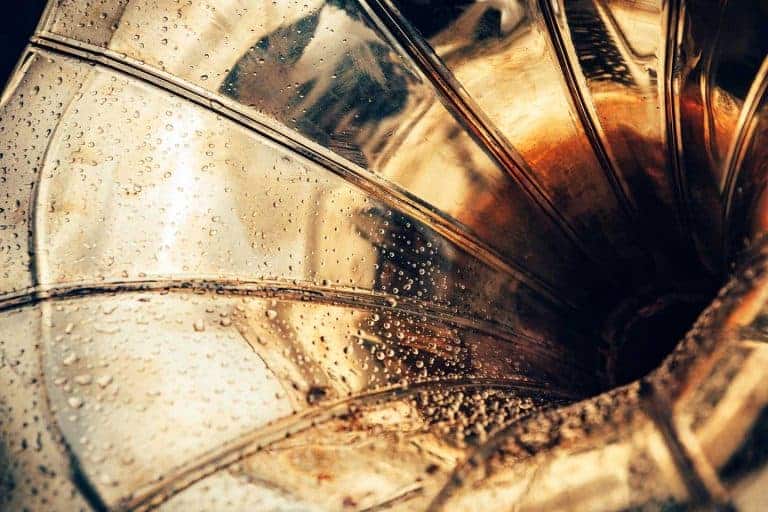Why Is My Record Skipping? How To Fix A Skipping Record
The thought of music and time with my record player usually makes my heart skip a beat, but sometimes a skip in the sound can lead to arrhythmia and a spike in my stress levels. We know you have experienced it. You were probably sitting there with your new exciting find. Excited to hear your treasured gem you play it and boom it skips suddenly.
Why is my record skipping? Vinyl record skipping is usually caused by three common issues. The most common issue that causes records to skip is contaminants on the surface and in the grove of your record. The second most common cause for your record to skip is a scratch on the surface of your record. The final most common reason a record can skip is vibration.
While dust and scratches are the most common we need to review some other factors. There are also some easy methods to prevent and even some to fix your skipping record.
Why Does My Record Player Skip?
Records and record players skip for a variety of reasons most of which come from the records themselves. The most common reasons like we discussed earlier are scratches or surface contaminants. However, from time to time the record play, or turntable, itself is the cause of the problem. The skips caused by your turntable are usually related to tonearm or stylus issues.
Let’s go over a list of the more common causes of record skipping and learn what we can do about them.
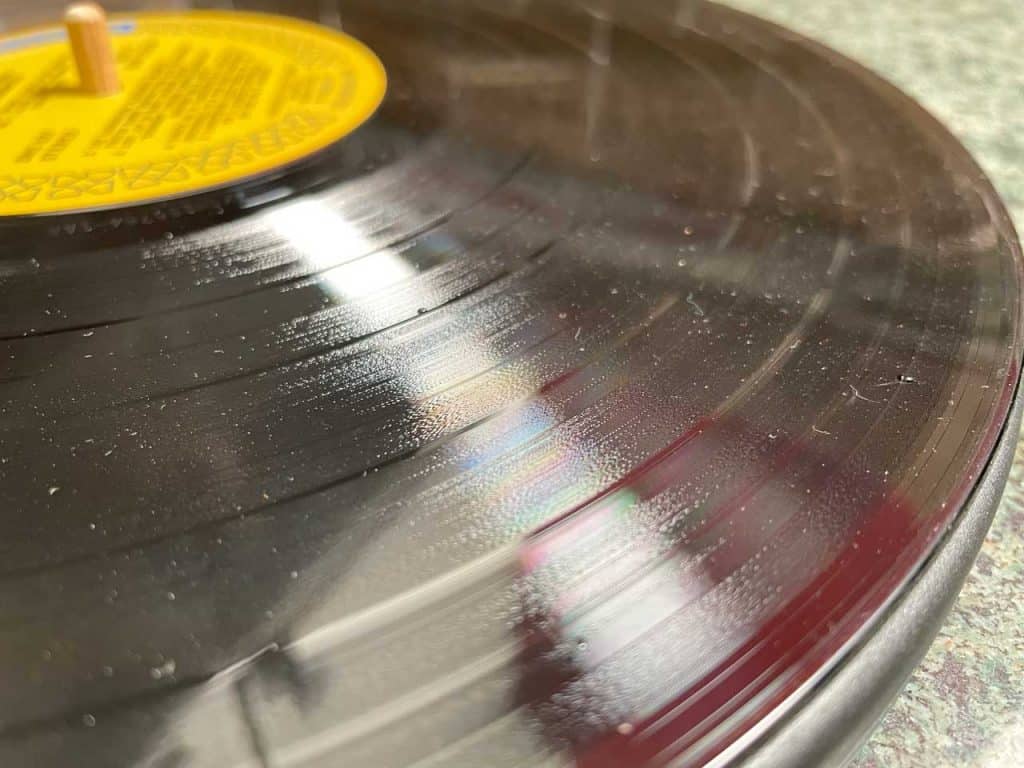
Debris And Dust
Airborne environmental contaminants can land on the surface of your record and settle into the tiny spaces between the grooves. As the stylus glides along the surface to produce the sound you love, it can get caught and be knocked off groove or skip notes.
The easiest way to remedy this is to clean your record. We always recommend deep cleaning all new records, that includes new and used, before the first play and then having a maintenance cleaner. For a squeaky deep clean we recommend this cleaning system and for your, before every play maintenance cleaner, we highly recommend this light-duty cleaning spray.
Dust can also cause build-up on your stylus. Make sure to inspect your stylus for any gunk or dust and if you notice a build-up be sure to carefully clean the stylus. We highly recommend grabbing a quality stylus brush.
The best way to prevent this is to deep clean your records and then store your collection using high-quality anti-static and dust preventative sleeves. Often factory sleeves shed paper and dust onto vinyl records, so we highly recommend these sleeves. If they are unavailable this is a great secondary option.
It’s also important to use poly outer sleeves to prevent dust from slipping into the seams of your outer jacket. These are also a great option if the first is out of stock.
Prevention is especially key if you enjoy pets as much as we do, and protecting your records from dander, dust, and airborne debris with proper storage is essential. The only cats you’d want near your record area are Cat Stevens or a Harry Chapin hit.
Skin Oils
As we handle our records the oil that is naturally on our fingertips and palms can leave a filmy residue on the surface of the record, causing the stylus to slip or preventing its smooth passage over the grooves (insert heart palpitation.) A simple clean as aforementioned with this cleaning system or this one will put you back on track.
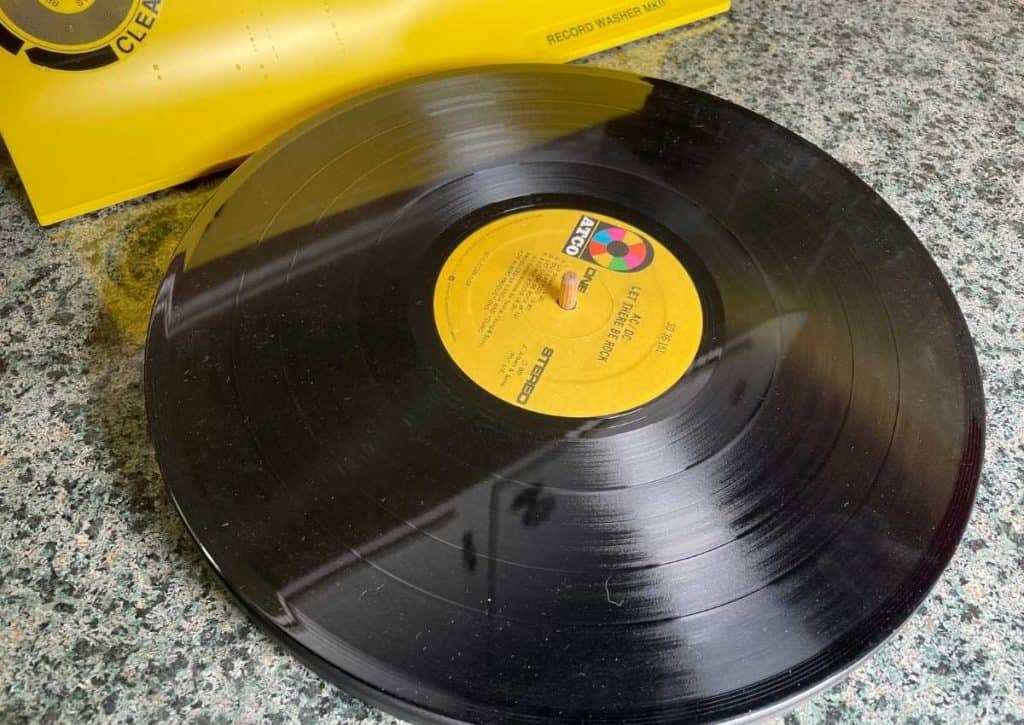
As far as prevention goes, handwashing before handling is a great measure if you’ve just polished off a classic McFry or falafel. If it’s a precious record to you, some vinyl lovers wear gloves. Our recommendation is mindfulness and proper handling
To properly handle your records, never touch the area where the grooves are visible. Always make sure to only touch the edge or center of your record.
Warping
Pressure, temperature, and improper storage can all cause warping. When we purchase records we intend to handle them with care. Perhaps you decide to take one of your records for a spin in your 1960s convertible Cadillac (we wish, right?) on your way to visit Great Aunt Ida; it’s a balmy 75° and you park in her shadeless driveway and stay for an extra glass of lemonade.
Warmth, whether from the sun in your car or from being stored in the attic, can leave your record vulnerable to warping. If stored at a tilt or under an object that applies even slight pressure, this can cause bending in the vinyl that will be audible when it plays.
The basic ways to rectify warping are to use weight and pressure from flat heavy objects such as books, using a record flattening device, or to pay for record flattening services. For more on how to remedy warping and to learn more about causes and prevention, please visit our article on warped records.
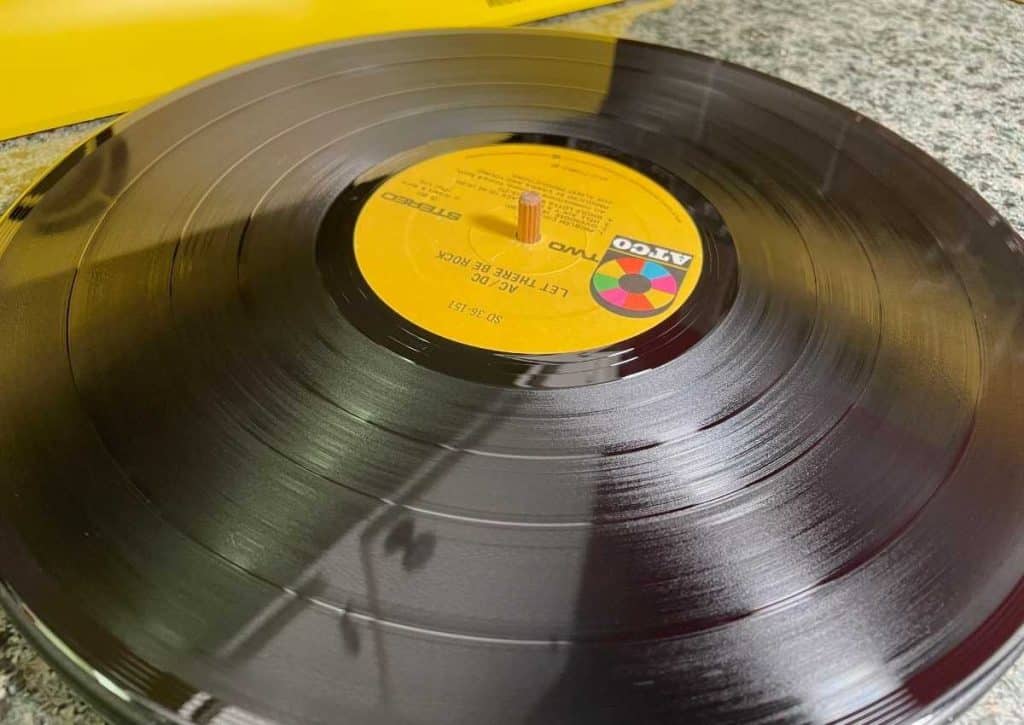
Scratches
One of the most surprising and preventable causes of scratching occurs while cleaning records. It’s important while lifting debris from a record that it is done in a circular motion with the grooves. Dragging a cleaning cloth with debris across the grooves can cause minute scratches that can affect sound quality.
Another very common cause of scratching is dust and contaminants on the surface when you move the records in and out of their sleeves. The surface dusk rubs against the paper or sleeve and leaves surface scratches. We will say it again here, clean your records well and often.
As we’ll explore next, it’s also important to ensure that the tonearm is properly balanced to prevent scratches from your record player.
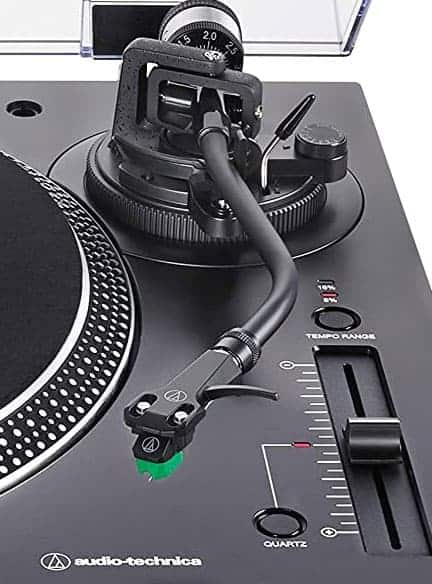
Tonearm Balance
A skipping sound may not be due to an issue with your record, it could be a player issue. If a few of your records are skipping and you’ve tested one with a friend, perhaps check your tonearm.
Tonearms are balanced by a manually adjusted weight system. When the balance is off it can cause slipping, the most minor effect of which is skipping or going off track. A more serious effect could be scratching or damaging your record. Audio Technica has a great article on setting the tonearm straight.
Stylus Replacement
It may be time to replace your stylus. Examine it for bends, wear, or other damage. Over time your stylus will wear out or become dull. We recommend following your record player’s manufacturing guidelines for maintenance. If you’ve lost yours, a general guide is to change your stylus after 1,000 hours of playtime.
Some dedicated audiophiles track their time with a table and pencil left by their player, and some do rough estimates based on how long they typically tune in daily or weekly. Another great easy way to track your stylus life is with this super easy method.
If your record player is new to you, we recommend replacing the stylus before playing, to ensure that you don’t damage your records with an overused stylus, since prior usage is impossible to gauge.
Why Is My Record Skipping? How To Fix A Skipping Record?
Detailed and gentle cleaning with proper techniques will resolve most minor issues that cause record skippings, such as debris, grime, and fine particles. We would recommend investing in a deep cleaning system and a general maintenance kit for daily use before play.
Mechanical issues with your record player may be causing a skip in the sound, in which case, we recommend balancing your tonearm before playing again to prevent irreparable damage and scratches. Once your tonearm is balanced if your record continues to skip, examine your stylus for damage.
Common stylus wear includes bending, buildup and dullness. Styluses do wear out, and it’s best to replace them after 1,000 hours of playtime or as recommended by the manufacturing guidelines that come with your machine or the maintenance instructions on the manufacturer’s website.
Some damage may be beyond repair, in which case, we recommend reaching out to a local repair shop, if you have access to one, to see what can be done for your record before attempting some of the other unconventional methods that are on the internet. Let’s face it there are a lot of crazy things shared on the internet. Let’s not be the experimental type on our precious turntables and vinyl.
How do I know if my record needle is bad?
It may have visible signs of wear upon inspection, such as bending, dullness, breakage, or grime. While grime can be cleaned, if you find that your stylus needs to be replaced, we recommend looking at the maintenance manufacturing guidelines for your record player. If you’ve misplaced your copy (or chucked it out with the blender instructions for last year’s Christmas gift) these are usually available on manufacturer websites.
Some dedicated audiophiles track their time with a table and pencil left by their player, and some do rough estimates based on how long they typically tune in daily or weekly. Another great easy way to track your stylus life is with this super easy method. If the record player is vintage or pre-loved, consider replacing the stylus before playing. Playing records, even new ones, with an overused stylus can cause damage.
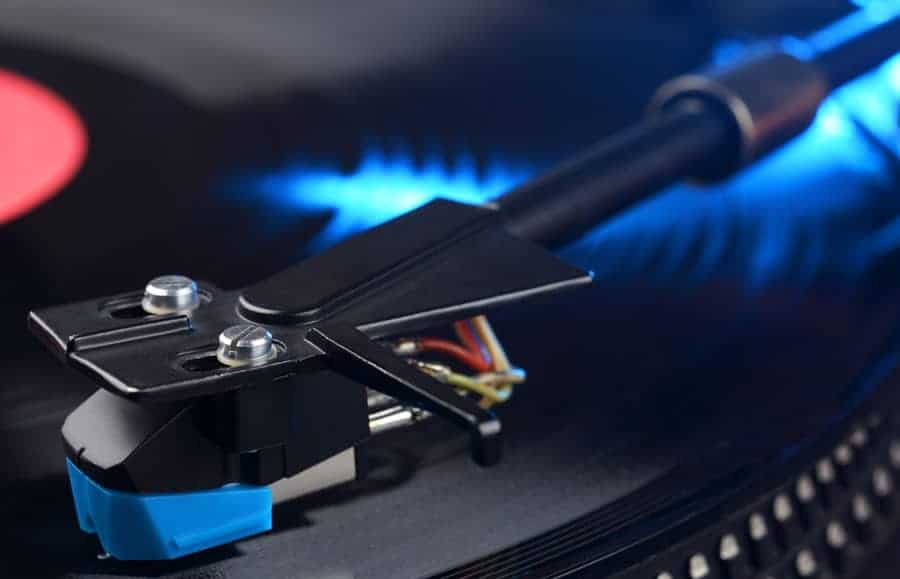
Why does my record keep skipping in the same spot?
You may have a buildup of fine particles that causes the stylus to glide over the record in this particular spot on each pass. Detailed and gentle cleaning with proper techniques will resolve most minor issues that cause record skipping, including debris and dust. If any of these are the likely culprit, we highly recommend this cleaning system for deeper cleaning or this one for lighter duty cleaning.
Your tonearm may need to be rebalanced. Check the manufacturing guidelines provided in the manual or on the manufacturer’s website for the safest way to do this. Accuracy is incredibly important when redistributing the weight of a tonearm. A heavy or unbalanced arm can damage or scratch your record permanently.
You might check the surfaces your turntable is on, including the table itself and the floor. Flexible surfaces can respond to vibrations from the floor which can also cause skipping. If you were dancing a bit too, well let’s say gracefully, near your turntable you can cause the stylus to hop causing a skip.
Why is my new record skipping?
When unwrapping new vinyl the anticipation to hear sweet tunes is tantalizing. It is not only dissatisfying, it’s frustrating when a record malfunctions. On the rare occasion, a new record skips there are a few typical culprits and some atypical ones.
We always recommend a good clean before the first play to remove the molding release agent and paper sheddings from your new record. We found that this cleaning system will completely clean everything off.
Occasionally, even with new records, the manufacturer’s inner sleeve that comes with a record can shed paper particles onto a record and this can impede sound play. We highly recommend replacing all manufacturer inner sleeves with anti-static inner sleeves to prevent this occurrence. If the aforelinked are unavailable, we also recommend these.
If everything checks out with your turntable, you might consider environmental factors, as an uneven floor or table surface. Surfaces that flex with movement or respond well to vibrations are not the best for turntables. You’ll want to stabilize the turntable or table it is sitting on as best as you can.
Some of the rarer causes include manufacturing defects on the record. For these do your general cleaning and troubleshooting and if you can not get it to stop skipping or sounding better then it’s likely this is the case. When this happens the best you can do is return it to the retailer for an exchange.
Why is my record skipping when there is no visible scratch?
At the risk of sounding like a broken record, grime, dirt, and dust, even when barely noticeable to the human eye, can affect even the best playing apparatuses. The vibrations produced to create the music we love can be temporarily impeded by these and it’s important to ensure that your records and turntable are clean.
If you live in an older home, have pets, or leave the windows open, we recommend regular dusting and vacuuming the space where you play your records to minimize the effects of these. We also recommend storing your records using an anti-static inner sleeve (different from the one that comes with new albums, which often shed paper particles), your album jacket, and an outer poly sleeve, to prevent fine particles and debris from settling in the crevices.
We also recommend handling records with freshly clean hands to prevent natural skin oils from settling in and causing records to slip under a stylus were handled and also to prevent attracting debris which will impede stylus flow.
What good advice do forums have for why my record is skipping?
Forum users know a thing or two usually and oftentimes share great tips. Many are dedicated hobbyists and record enthusiasts with years or decades of experience and appreciation. They offer free advice, and here’s the best of what they say.
Firstly, pay attention to your record player. A cheap turntable will wear out and could damage your records in the long run. There are many tweaks you can make to enhance a player’s performance, but in the end, it’s better to invest in a quality player from the get-go. Here is a great starter option we recommend, that you are not like to outgrow for a while. If you want something a little nicer you could always go this route or even this one.
Secondly, not all styluses are created equal and stylus maintenance is essential. There are tons of recommendations for stylus upgrades but it all depends on your turntable and preferences. However, a stylus upgrade is no substitute for a quality turntable.
Regarding records that skip, occasionally advice surfaces that have mixed results. One such piece of guidance is using a toothpick to dislodge buildup and debris. We don’t recommend this due to the risk of damaging the fine vinyl grooves. The safest method for cleaning a record is using recommended solvents or systems designed especially for vinyl.
Why Is My Vinyl Record Skipping Conclusion
Since there is a lot of information here we wanted to give you a quick summary for using to troubleshoot and potentially fix your skipping records. Let’s go over the troubleshooting first.
- Does there appear to be a scratch on the surface?
- If so, try cleaning the record really well to remove any surface dirt in the scratch.
- Does there seem to be dust, fingerprints or anything on the surface?
- If so, try cleaning the record really well to remove any surface dirt.
- If not, still clean the surface of the record well just in case there is some dust you can not see.
- Is your record warped?
- If so, read over our article on warped records to troubleshoot.
- If cleaning fails you need to try balancing the tonearm and/or adjusting the anti skate per your manufacturers recommendations.
Usually with records it is a matter of how clean the record is and the condition it is stored in. The best way to fix skipping is to try to prevent it with proper storage and cleaning before every play.

